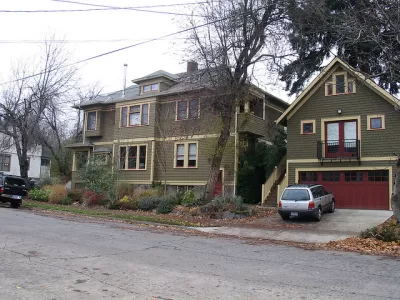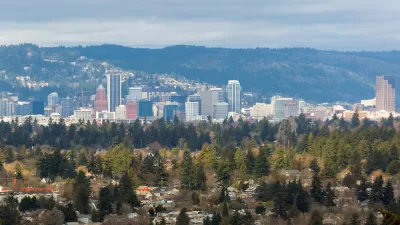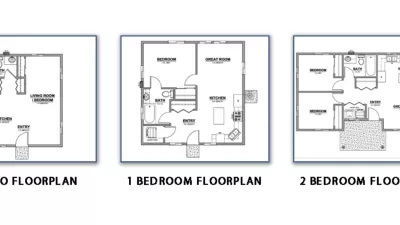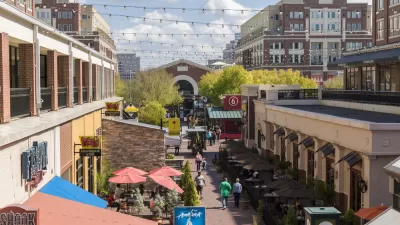A new report by the Urban Institute examines the consequences of small differences in land use regulations.

"Why did accessory apartments catch on in Portland but not DC? A new study from the Urban Institute compares the land-use reform process in each city, as well as the end result."
Libby Solomon shares news of a newly published comparative analysis of the efforts of two cities to allow accessory dwelling units (ADUs): Portland and Washington, D.C.
The premise of the analysis: that Portland has been far more successful in achieving the desired development of ADUs, despite the similar intentions of land use reforms passed in the past decade in each city, both with similar development histories and populations.
"But that’s where the similarities end," writes Solomon to summarize the findings of the report. "[W]hile Portland’s accessory units skyrocketed, with hundreds built each year, DC’s accessory apartments saw a much smaller bump. From 2017 through 2019, Portland issued more than 1,500 ADU building permits; DC issued only 68."
According to the Urban Institute's analysis, property owners in D.C. face structural and historical issue that make ADUs significantly more difficult and expensive to build.
"In the end, DC’s new zoning regulations passed allowing accessory units by right in residential zones. But those regulations are more restrictive than advocates wanted," writes Solomon. "The Urban Institute researchers write that ADU regulations are too complex for many to navigate without hiring lawyers and architects; the space requirements cut out many potential builders; and the rules require the owner to live on the property."
A lot more analysis and insight into the findings of the report are available in the source article.

Planetizen Federal Action Tracker
A weekly monitor of how Trump’s orders and actions are impacting planners and planning in America.

Map: Where Senate Republicans Want to Sell Your Public Lands
For public land advocates, the Senate Republicans’ proposal to sell millions of acres of public land in the West is “the biggest fight of their careers.”

Restaurant Patios Were a Pandemic Win — Why Were They so Hard to Keep?
Social distancing requirements and changes in travel patterns prompted cities to pilot new uses for street and sidewalk space. Then it got complicated.

Platform Pilsner: Vancouver Transit Agency Releases... a Beer?
TransLink will receive a portion of every sale of the four-pack.

Toronto Weighs Cheaper Transit, Parking Hikes for Major Events
Special event rates would take effect during large festivals, sports games and concerts to ‘discourage driving, manage congestion and free up space for transit.”

Berlin to Consider Car-Free Zone Larger Than Manhattan
The area bound by the 22-mile Ringbahn would still allow 12 uses of a private automobile per year per person, and several other exemptions.
Urban Design for Planners 1: Software Tools
This six-course series explores essential urban design concepts using open source software and equips planners with the tools they need to participate fully in the urban design process.
Planning for Universal Design
Learn the tools for implementing Universal Design in planning regulations.
Heyer Gruel & Associates PA
JM Goldson LLC
Custer County Colorado
City of Camden Redevelopment Agency
City of Astoria
Transportation Research & Education Center (TREC) at Portland State University
Camden Redevelopment Agency
City of Claremont
Municipality of Princeton (NJ)





























